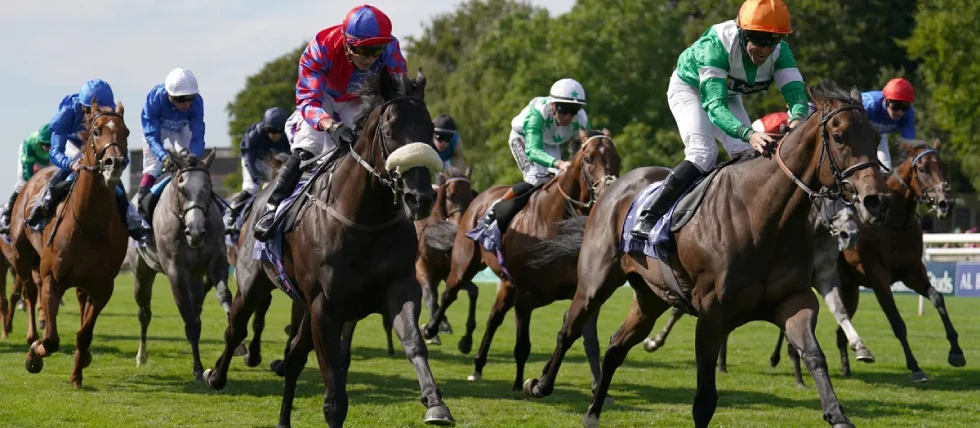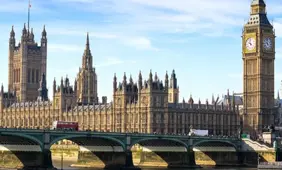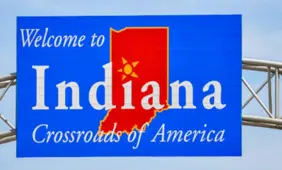Nevada Regulators Uphold 15-Year Ban and $100,000 Fine for Trainer After Meth-Positive Tests
Nevada regulators upheld a 15-year ban and a $100,000 fine against trainer Ricardo Castillo.

The Nevada Gaming Commission voted unanimously 5-0 to affirm a punishment issued over the summer by the Nevada Gaming Control Board after four of Castillo’s horses tested positive for methamphetamine following races at the Elko County Fairgrounds in the summer of 2024. The horses – Bnb Hasta La Luna, Famous Prizes, Dr. B and Bnb Lightning McQueen – were disqualified from combined purses of $17,700.
The decision closes a multi-tiered review that began with a Board of Stewards ruling that initially imposed the maximum statutory penalty available to them: a $4,000 fine and a four-year bar on reapplying for a license. Castillo appealed that outcome to the Nevada Gaming Control Board, which imposed the far stiffer sanction later in the summer; the Gaming Commission was the final body to hear Castillo’s appeal and chose to reaffirm the heavier discipline.
Castillo and his attorney, Jennifer Gaynor, argued the sanction is disproportionate and unprecedented in Nevada racing. Gaynor told the commission she did not represent Castillo until the Commission hearing, was not permitted to introduce new evidence, and said the punishment departs from typical penalties in similar cases. "There has never been a fine of this magnitude in a horse racing case in Nevada or anywhere else we could find", she said. "The standard fines and suspensions are in the $1,000 and 30-to-180-day range."
Gaynor also noted Castillo’s previously clean record and stressed that all horses are alive and reported to be healthy. She criticized the process and emphasized the practical consequences for Castillo, who she said earned about $1,500 a month as a trainer and stood to receive roughly $6,500 in shared winnings from the four horses before expenses. "If Mr. Castillo isn’t allowed to work as a trainer, he doesn’t know how he will be able to pay the fine", she said.
Castillo addressed the Commission directly in a brief statement asking for leniency, describing racing as a personal passion rather than a lucrative profession. "Unless you are at the highest level, it’s not a big-money game", he said. "A trainer that makes $1,500 a month in salary and prize money, which was never a lot." He also said he had never had a failed drug test prior to these incidents and that he learned of the positive results only months after the races.
Commission members framed their decision around integrity, safety and deterrence. Chair Jennifer Togliatti said the potential for serious injury to jockeys or horses made a strong deterrent necessary. "It didn’t happen, and everyone is lucky it didn’t happen, but somebody could have been seriously injured or killed", she said, adding that the scale of the penalty must send a message even if the respondent lacks the means to pay immediately.
Commissioner Abbi Silver rejected Castillo’s cross-contamination defense as previously considered and dismissed by the stewards. Silver also addressed comparisons to an earlier case involving trainer Alvaro Torres, who faces a five-year ban and a $5,000 fine after a cocaine-positive test this year. "It makes a difference that more horses were involved in this case", Silver said. "At the end of the day, Mr. Castillo did make money from these purses, and I know the defense has said it’s only $6,500, but it’s $6,500 made being responsible for the horses." Commissioner Rosa Solis-Rainey said she shared concerns about wagering integrity and competitor safety.
More Regulation
Regulatory Precedent and Industry Response
The case highlights a growing willingness among Nevada regulators to impose steeper penalties in instances that touch both animal welfare and the integrity of pari-mutuel wagering. Racing authorities routinely stress chain-of-custody protocols, laboratory accreditation and strict liability for trainers when prohibited substances are detected. Industry stakeholders say those standards are intended to protect bettors and athletes – equine and human alike – but also call for transparent testing procedures and consistent sanctions across jurisdictions.
Earlier this year the Torres case drew scrutiny for its relatively lighter financial penalty and shorter licensing ban; regulators in this hearing distinguished the two on the basis of scale and the number of horses affected. The decision in Castillo’s case is likely to be cited by stewards and regulators in other states when multiple positive tests occur in a compressed timeframe, and to influence how licensing reciprocity is applied when out-of-state sanctions are shared across racing commissions.
For Castillo, the ruling effectively removes the option of licensed training in Nevada for 15 years and, because many jurisdictional agreements recognize Nevada sanctions, will seriously curtail professional opportunities elsewhere. The case underlines the tension between enforcing stiff deterrents for substance violations and ensuring penalties are proportionate and procedurally fair – debates that continue to shape racing governance as regulators update rules and testing protocols.
RELATED TOPICS: Regulation
Most Read
Finland Publishes 2-4-2 Gambling Harm Framework Before 2027 Market Opening
Feb 18, 2026Must Read
 Interviews
Interviews
Exclusive Interview: Levon Nikoghosyan Shares AffPapa Winning Formula for Successful iGaming Events
Dec 03, 2025 Interviews
Interviews






Review this New Post
Leave a Comment
User Comments
Comments for Nevada Regulators Uphold 15-Year Ban and $100,000 Fine for Trainer After Meth-Positive Tests